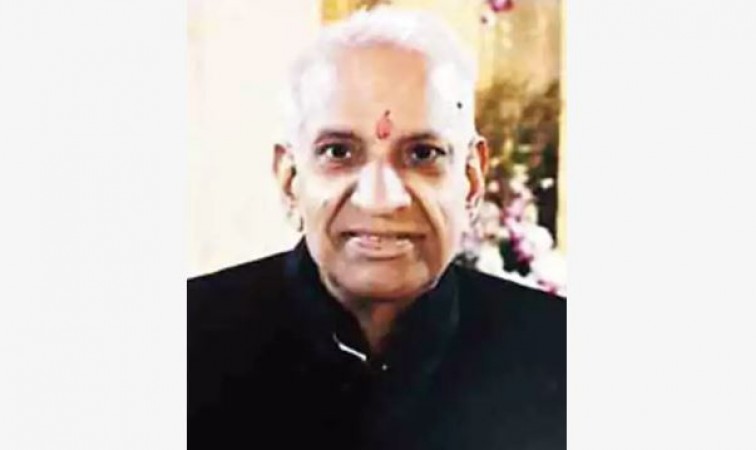
New Delhi: In the annals of India's fight against terrorism, the gruesome incident involving the kidnapping and beheading of All India Radio officer ML Manchanda by Khalistani terrorists in May 1992 remains etched as a painful chapter. The incident not only shocked the nation but also highlighted the violent and extremist nature of the Khalistan movement, which sought to establish an independent Sikh state in the Punjab region.
The Khalistan Movement: A Brief History
The roots of the Khalistan movement can be traced back to the early 20th century when Sikh leaders began demanding autonomy and recognition for their distinct identity within the Indian subcontinent. However, it wasn't until the late 1970s and early 1980s that the movement gained significant momentum.
The discontent among some sections of the Sikh community was fueled by perceived economic disparities, political marginalization, and the erosion of religious rights. This discontent provided a fertile ground for radical elements to exploit and advocate for the creation of an independent Sikh state called Khalistan.
The movement was marked by violence, as various Sikh extremist groups engaged in acts of terrorism, assassinations, and bombings to further their cause. The infamous Operation Blue Star in 1984, aimed at flushing out militants from the Golden Temple in Amritsar, escalated tensions and sowed the seeds for greater radicalization.
The Brutal Kidnapping and Beheading
In this environment of turmoil and violence, ML Manchanda, an officer at All India Radio (AIR), became a tragic victim. On May 11, 1992, while traveling from his residence to the AIR office in Jalandhar, Punjab, Manchanda was abducted by Khalistani terrorists. The abduction itself was a chilling reminder of the ruthlessness that had come to define the Khalistan movement.
Manchanda's captors were members of the Khalistan Commando Force (KCF), a prominent Sikh extremist group. The KCF had gained notoriety for its involvement in various violent activities aimed at destabilizing the region and advancing the Khalistan cause.
Despite appeals and efforts by his family and authorities, negotiations with the terrorists failed. On May 14, 1992, just three days after his abduction, ML Manchanda's life was brutally ended. The terrorists beheaded him, sending shockwaves across the nation.
Impact and Consequences
The gruesome murder of ML Manchanda shed light on the extent to which Khalistani terrorists were willing to go to achieve their objectives. The incident elicited widespread condemnation and highlighted the need for a robust response to quell the terrorist activities of the Khalistan movement.
The Indian government intensified its efforts to counter the extremist threat posed by Khalistani groups. Security forces were tasked with dismantling the infrastructure of these groups and apprehending their leaders. Legal measures were also implemented to curb the propagation of extremist ideologies and to disrupt their funding networks.
Over the years, the movement gradually lost its momentum due to a combination of factors, including successful counterterrorism efforts, the decline in external support, and changing aspirations within the Sikh community. By the late 1990s, the intensity of Khalistani activities had significantly diminished.
Legacy and Remembrance
The tragic episode involving ML Manchanda's kidnapping and beheading remains a somber reminder of the human cost of terrorism and extremism. His sacrifice serves as a testament to the resilience of individuals who continue to uphold the values of peace, unity, and harmony in the face of adversity.
As India continues to commemorate the sacrifices of those who lost their lives to terrorism, it is crucial to remember the victims like ML Manchanda and acknowledge the importance of preserving the unity and diversity that define the nation. The tragedy also underscores the importance of vigilance and cooperation in safeguarding against extremist ideologies that threaten the fabric of society.
Forgotten Valor: Unveiling the Vellore Mutiny's Impact on India's Struggle for Freedom
Bhopal Gas Tragedy and Shah Bano Case: Rajiv Gandhi's Struggles with Crisis Management
Kerala Assembly Passes Unanimous Resolution to Rename State as 'Keralam'